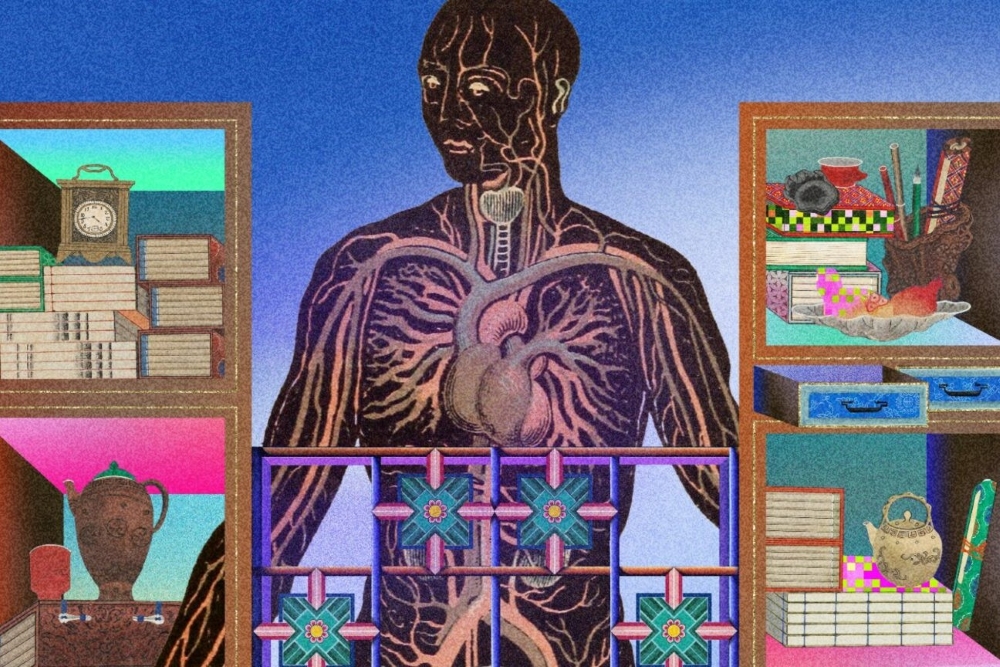Exploring the intersection of film and artificial intelligence: A deep dive into Bucheon International Fantastic Film Festival
A city of innovation and culture
Bucheon, a high-rise city on the outskirts of Seoul, South Korea, has long been a hub for both high-tech advancements and cultural industries. The city has transformed a WWII bunker into a digital art hub, boasts a comic book museum, a Webtoon convergence center, and hosts two film festivals along with a Philharmonic Orchestra founded in the analog era. This year, the Bucheon International Fantastic Film Festival (BiFan) took a bold step by launching a competition for AI-produced short films, co-hosting a conference on the topic, and operating a hands-on AI workshop. This embrace of AI felt like a brave response to every mature film festival’s fear of becoming stale.
A star-studded conference
The Bucheon conference featured an impressive lineup of speakers, including Caleb Ward, CEO of Curious Ridge; directors Dave Clark, Kwon Hansl, and Piotr Winiewicz; Lee Seungmoo, professor of film at the Korean Academy of Film Arts; and Margarita Grubina and Anna Bulakh of voice cloning company Respeecher. The discussions were rich and varied, offering deep insights into the current and future landscape of AI in the film industry.
AI in action: “Wonderland” and “Queen of Tears”
The recently-released feature film “Wonderland,” directed by Kim Tae-yong, is a prime example of AI’s impact on filmmaking. The film used voice cloning to add dialogue by actor Gong Yoo that had not been recorded during principal photography four years ago. It also created a younger iteration of another actor, Lee Eol, who passed away two years ago. Similarly, tvN’s “Queen of Tears” series combined generative AI with virtual production to have actor Kim Ji-won encounter her double in a snowy forest. These examples highlight the transformative potential of AI in enhancing storytelling and production quality.
For more details, you can watch the trailers here:
The poly-crisis of media and entertainment
Sten-Kristian Saluveer, strategic adviser, head of Cannes Next, and CEO of Storytech, led the debate and analysis. He described the media and entertainment’s current “poly-crisis” as one where the industry is shifting from an era of producers and single creators to one of user-centric creation, with AI accelerating and empowering the users. Tools such as Unity, Unreal, Ableton, and platforms like Substack, Patreon, and YouTube already allow creators to create, distribute, and monetize outside of the traditional studio or broadcaster context.
The global impact of new tools
Korea provides one of the best examples of how new tools can outrun traditional media. Netflix’s globally-successful hit show “Squid Game” was seen by 142 million people. In contrast, YouTube creator Mr. Beast’s “Squid Game in Real Life” has been viewed by over 628 million users. This not only brought a financial windfall for Mr. Beast but also earned him a deal with Amazon Prime Video.
For more details, you can watch the trailers here:
Different approaches to AI in entertainment
Saluveer explained two different approaches toward AI emerging within the entertainment industry. The U.S. approach prioritizes experimentation, where issues like OpenAI’s clash with Scarlett Johansson over a synthetic voice will be resolved in court. On the other hand, the European Union emphasizes safety and believes regulation should precede industry use.
The future of AI in filmmaking
Saluveer described an AI-powered future where everything that can be automated will be automated. Over a longer time span, perhaps 10 years from now, IP-generated content may have sidelined traditional creators. “Author-generated cinema will still exist, but it may be local and niche. Like opera,” he said.
The ethical considerations of AI
Using a clip called “And I didn’t say a thing,” Respeecher’s Grubina demonstrated the possibility of human redundancy as an imminent reality. From the smallest of samples, such as a still photo or video clip, it is already possible to clone a voice to a new face, make synched face movements accurately fit the sounds, and make the voice speak in a new accent or language. However, Grubina also touched on the need for permissions and the ethical use of voices, such as avoiding sexual or political dialogue.
A glimpse into the future: “About a Hero”
Winiewicz unveiled clips from his feature-length film “About a Hero,” which is likely to premiere at one of the autumn festivals this year. The film explores themes of AI, the work of legendary German filmmaker Werner Herzog, and the history of Kaspar Hauser. Herzog previously made “The Enigma of Kaspar Hauser” and recently issued a defiant statement suggesting that AI will need hundreds of years before it can make a film as good as his. Winiewicz says “About a Hero” was not made to challenge Herzog’s words but rather to play with some of the concepts of AI.
For more details, you can watch the trailer here:
Embracing the AI-powered era
BiFan festival director Shin Chul embraced the challenges of the AI-powered, user-generated era. “Filmmaking will cease to be a battle of cash; it will only be one of creative challenges,” Shin said. He gave AI the materials to come up with both the festival’s poster and its trailer. The poster is a colorful hybrid of previous BiFan posters. The short film asks the question, “AI, who are you?” The uncomfortable answer: “I’m just your mirror.”
As we stand on the brink of an AI-powered future, the possibilities are both exciting and daunting. The Bucheon International Fantastic Film Festival has shown that embracing these changes can lead to innovative and thought-provoking outcomes. The journey ahead is uncertain, but it promises to be a fascinating exploration of creativity and technology.

 Italian
Italian







